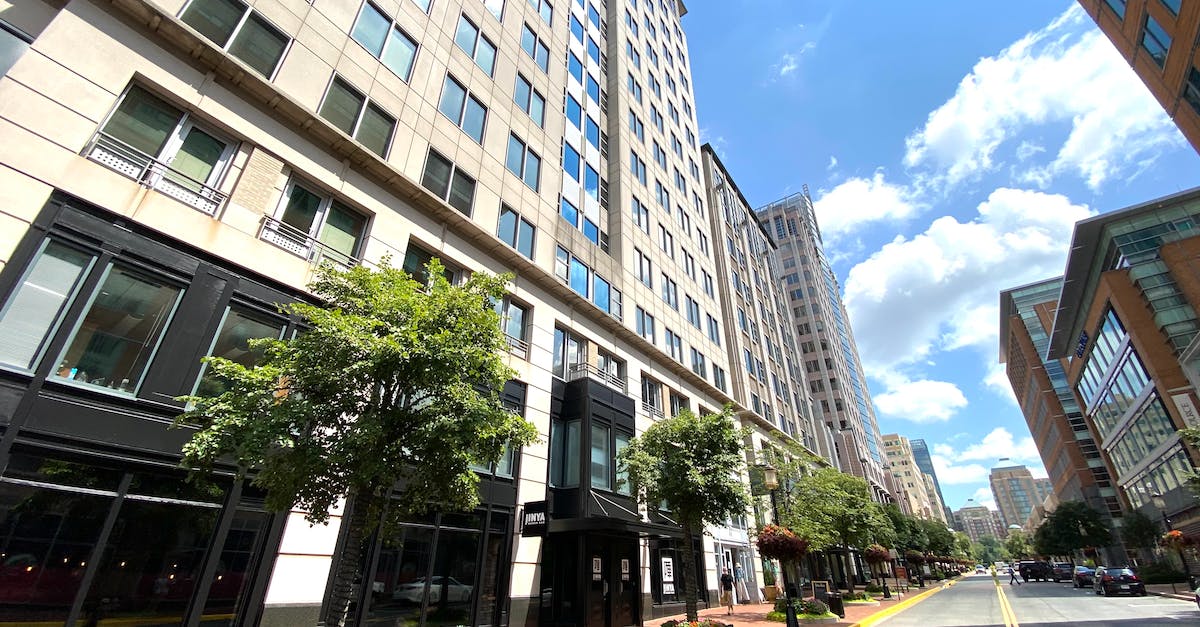If you’re a landlord seeking to maximise your income or a business ready to expand into new premises, you’ll need a reliable commercial mortgage lender in your corner. In this article, we’ll delve into commercial mortgages in the UK and how they can help businesses in 2024.
We’ll explore the key differences between commercial and residential mortgage rates and how understanding these can unlock powerful finance options for your business. Whether you’re a Sole Trader, Partnership, or Limited Company, we’ll guide you through finding the best mortgage for your needs.
And it’s not just about finding a lender. We’ll also discuss the potential fees involved, including arrangement and valuation fees.
The Importance of Commercial Mortgage Lenders in the UK
Commercial mortgages are an essential funding source for British businesses looking to buy or expand into new premises. By securing a suitable mortgage deal with favourable rates, businesses can simultaneously finance their growth and acquire the ideal commercial spaces.
There’s an all-important nuance that needs to be understood here. Commercial mortgage rates are not the same as residential products. The dynamics are different, the risk factors vary, and so does the regulatory framework.
Finding the perfect match can be daunting when looking for commercial mortgage providers. Companies such as Lloyds Bank, NatWest, and Barclays Bank are reputable options, but let’s remember the potential specialist lenders bring. The choice gets even more complex when considering the various features and charges across different providers.
Help is at hand in the form of a commercial mortgage broker. Assessing the business’s needs and eligibility and scouring the market for the choicest deals, a specialist broker offers a range of other property finance products beyond your standard commercial mortgages. Options like buy-to-let, bridging finance, and development finance may all be up for consideration.
What Is The Difference Between Residential And Commercial Mortgages?
To truly capitalise on the benefits of securing a commercial mortgage, it’s pivotal that businesses understand the crucial differences that distinguish commercial from residential mortgage rates.
One fundamental difference is the interest rate. Unlike residential, commercial mortgage rates are typically 7-12% higher. But don’t be deceived into thinking that commercial lenders offer pre-set rates. It’s quite the converse. Thanks to the unique packaging of commercial mortgages, your interest, loan amount and repayment term are closely matched to the specific needs of your business.
That’s to say, they depend on your business’s financial health, how you intend to use the loan and your credit history, among other factors. Lenders use these parameters to construct a risk profile and apply an interest rate margin above their internal prime lending rates. Given this, commercial rates can fluctuate significantly from one lender to the next.
Another key variance lies in loan repayment. With most residential mortgages, your monthly payments cover the capital borrowed and the interest. It’s a simple repayment method that sees you owning the property outright by the end of the loan term. But, in the commercial mortgage world, the approach could be more streamlined.
And finally, there’s the issue of the needed initial deposit. Generally, commercial mortgage lenders demand a minimum deposit of 25%, a figure akin to what’s obtainable in the residential mortgage landscape.
This is where the expertise of a skilled commercial mortgage broker becomes invaluable. These professionals are well-informed about the mortgage market and can help clarify the complex realm of commercial mortgages. Their knowledge and experience can assist businesses in obtaining the most favourable deal, making acquiring retail space more straightforward.
After all, the right mortgage deal and favourable commercial mortgage rates can supercharge a business’s growth and ensure it secures the perfect commercial premises. Such is the true mark of a good business decision.
Finding the Best Commercial Mortgage for Your Needs
Whether you’re a corporation, a limited company, or a sole trader, a commercial mortgage could be the key to securing the premises you need for your business. But how do you find the best commercial mortgage? It’s all about finding the right lender and ensuring their offer matches your requirements.
Engaging the services of a commercial mortgage broker is a sensible choice. A broker can help you assess your needs and eligibility, and they’ll go the extra mile to find the ideal mortgage for your circumstances. Moreover, they often have access to a wide range of property finance products, including buy-to-let, bridging finance, and development finance.
Many a time, it’s more than just about high street banks. These brokers can tap into their network of mortgage lenders you might have yet to consider or have access to. With their expert knowledge, they can navigate this intimidating sea of options, negotiate on your behalf, and present your loan application in the best possible light. They aim to attract the most attractive terms and competitive offers, saving your business valuable time and money.
Additionally, these brokers provide practical tools like a mortgage calculator, which can give you an initial indication of monthly repayments. Remember that your property may be repossessed if you do not keep up repayments on your mortgage.
There may be many commercial mortgage providers and products to choose from, and while this can make comparisons complex, it’s all about understanding the options available. This can place you in a more controlling position regarding future business premises planning. Knowledge is power.
“There is a wide range of commercial mortgage providers and products that businesses can select from, making comparisons potentially complex, but the need to take more control of their own future business premises planning has encouraged a greater demand for an understanding of the options available.”
Understanding the Potential Fees Involved
Before you commit to a commercial mortgage, it’s crucial to understand the potential fees involved. Given they’re dictated as a percentage of the loan, these costs can significantly impact your finances. But please don’t worry – your adviser will help you sort out the typical charges associated with a commercial mortgage.
Firstly, most commercial lenders charge an Arrangement Fee. This is typically 0.5% to 2% of your total loan amount. You must clarify whether this fee will be deducted upfront or added to your loan – it’ll affect how much you initially outlay.
You can’t forget about Valuation Fees. These are required for the lender to assess the property’s value and can cost between £200 and £1,000+. This figure isn’t set in stone – it can vary depending on property type and value.
Moreover, they may also charge for managing your account during the mortgage life. This will happen if you ever need to catch up with your monthly payments. All these fees are usually explained in their Tariff of Charges; make sure you ask for it.
Beyond these, further charges may apply, especially if you have a fixed-rate loan. Opting to pay or cancel the fixed interest rate could lead to a breakage cost. This would be on top of other fees, for instance, a prepayment fee.
Like residential loans, any property used as security may be repossessed if you fail to keep up repayments on your mortgage. This may even include your home.
Finally, remember the legal costs. When a lender presents legal fees, you must also pay your mortgage lawyer. This double-whammy can add up, but a good lawyer is worth every penny to ensure your purchase progresses smoothly.
Conclusion
Navigating the world of commercial mortgages in the UK can be daunting. Understanding the higher interest rates and the variability between lenders is essential. Remember, you’ll need a minimum deposit of 25% and be aware of potential fees, such as arrangement fees, valuation fees, and legal costs.
Working with a commercial mortgage broker is a smart move. They’ll help assess your needs and eligibility, negotiate on your behalf, and provide practical tools like a mortgage calculator. It’s all about finding the right lender that matches your requirements.
As we look ahead to 2024, businesses are well-positioned to secure favourable commercial mortgage rates. But it’s not just about the rates – it’s about understanding your options and planning for your future business premises. It’s also about understanding what can affect mortgage rates
Frequently Asked Questions
Can I get a fixed-rate commercial mortgage?
Most commercial mortgages offer a choice between fixed and variable interest rates. You can choose the option that suits your business needs and values.
Can you get interest-only commercial mortgages?
Yes, interest-only payments are standard for commercial mortgages. You’ll repay the total loan amount at the end of the term or refinance onto another deal.
How much deposit do I need for commercial property UK?
How much deposit is required for a commercial mortgage? You should expect to pay a deposit of between 20% and 40%, but bear in mind that many factors can affect this figure. It can move up as well as down!
What are the top four commercial banks?
The top commercial mortgage lenders in the UK in 2023 include Barclays, HSBC, Lloyds Banking Group, and the Royal Bank of Scotland. These UK institutions are recognised for their comprehensive range of financial services.
Who has the best commercial mortgage rates?
The best rates can vary, but some strong contenders include Freddie Mac Optigo, Fannie Mae, and HUD 223(f). Could you check with lenders to find the best rate for you?
What is the current interest rate for a commercial mortgage?
The average commercial mortgage rate is around 3.5-4.5% for a 30-year term and 3-3.75% for a 15-year term. Rates may vary, so checking with lenders for the most accurate information is best.

